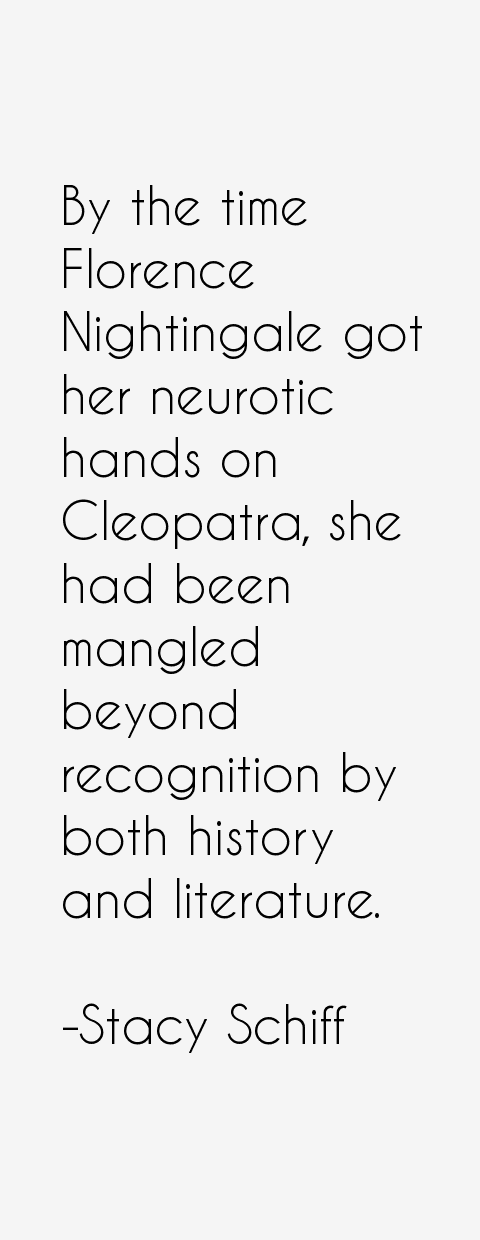Stacy Schiff Quotes & Sayings (Page 2)
Stacy Schiff quotes and sayings page 2 (author). Here's quote # 11 through 20 out of the 45 we have.
“For a few thousand years, women had no history. Marriage was our calling, and meekness our virtue. Over the last century, in stuttering succession, we have gained a voice, a vote, a room, a playing field of our own. Decorously or defiantly, we now approach what surely qualifies as the final frontier.”
“Life-writing calls for any number of dubious gifts: A touch of O.C.D., a lack of imagination, a large desk, neutrality of Swiss proportions, tactlessness, a high tolerance for archival dust. Most of all it calls for an act of displacement. 'To find your subject, you must in some sense lose yourself along the way,' is Richard Holmes's version.”
“We're talking about, essentially, the Roman historians, who wrote Cleopatra into the story mostly so that they could talk about the rise of Rome. And that is one of the problems, of course, in recounting her life. She's only ever apparent to us when there is a Roman in the room, or when her story intersects with the rise of Rome.”
“Recently a study proved that working from a larger, less cluttered computer screen increases concentration. I could have told them that. And yes, I write first drafts with a mechanical pencil and a yellow legal pad. There's good reason for this primitive behavior: I am a crackerjack typist. My hand moves far more quickly than my brain.”

“By the time Florence Nightingale got her neurotic hands on Cleopatra, she had been mangled beyond recognition by both history and literature.”
“Certainly, I am writing as a 21st-century woman, so I am much more inclined to view her as a three-dimensional woman. I think we keep coming up with this stubborn problem of a woman being judged by her appearance rather than her accomplishments. We are much more inclined to ask: was Cleopatra beautiful?”
“We don't know how Cleopatra spent her days, but we do know how other Hellenistic monarchs spent their days. There has been a great amount of scholarship in the last 30 years about education in the Hellenistic world and women in the Hellenistic world. We now know how an upper-class woman was educated in her day.”
“I went out to the desert where Cleopatra camped out with her mercenary army. It's a desolate outpost. Nothing has changed since her day. You realize how far she had to travel. Not only is it a good 150 miles against the current, you can't take a ship.”
“The desk thing is a problem for me. The ideal one would be vast and perfectly clear. Yet the bane of the biographical existence is paper; if you're 'an artist under oath' you're writing from a mountain of documentation.”
“What we know about Cleopatra's looks is based purely on her coin portraits. Engraving was imperfect, and that when you are a ruler and you ask for a coin to be engraved with your likeness on it, you are probably trying to project a certain air of authority.”
Stacy Schiff Quotes Rating
No Ratings Yet
Leave A Comment
























